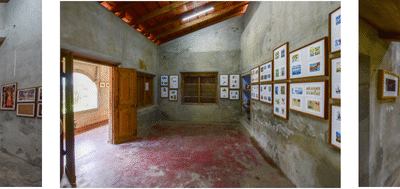News
India needs $2 trn to meet ‘Housing for All’: KPMG
It is estimated that by the year 2022, India needs to develop more than 10 crore houses requiring an investment of more than $2 trillion at today’s cost or about $260 billion annually, more than double the current level of investment.
According to a KPMG India report to be formally released at the forthcoming KPMG India-NAREDCO real estate banking conclave, in Mumbai, on August 20, the investment in the housing sector must grow at a CAGR of 18-20 per cent (including 6-7 per cent of inflation annually) till 2022 to achieve the vision of ‘Housing for All’ by 2022. About $1.5 trillion additional investments would be required to develop supporting urban infrastructure and commercial real estate to achieve sustainable growth.
Neeraj Bansal, Partner and Head of Real Estate and Construction, KPMG in India, said, “Currently, the sector is witnessing investment of about $160 billion, of which about 80 per cent is for residential development.” Since FY08, he said, the sector has attracted close to $1 trillion of funds. The investments have risen at a CAGR of 14 per cent between FY08 and FY14, he added.
Lately, the sector has started facing significant liquidity crisis led by multiple factors such as weakening of global and local economy, lessening of households support to the sector. Some of the issues restricting flow of capital to the sector are: weak financial markets limiting developers and institutional lenders to raise equity and debt capital, weak global and local economy restricting flow of equity capital and no institution supporting long-term funding.
Less than a decade is available with the Government to achieve its vision of ‘Housing for All’ by 2022. Considering the fact that a real estate cycle (from conceptualisation to hand-over stage) is about seven to eight years, reforms in improving funding are required now for any visible action over medium-long term.
Some of the suggestions by KPMG India in this light are: granting infrastructure status to real estate sector to facilitate flow of long-term capital from institutional lenders, promoting PPP in real estate sector and by facilitating release of public land for private development especially in urban areas and streamlining the approval mechanism to reduce the project lifecycle and increase the churn of capital.

 News3 days ago
News3 days agoIshara Art Foundation to Present Group Exhibition ‘Amphibian Aesthetics’ at Ishara House in Kochi

 News4 weeks ago
News4 weeks agoUnity Group Launches Unity One Elegante Mall at Netaji Subhash Place, Delhi

 News1 week ago
News1 week agoMumbai Returns to Pre-Pandemic Investment Levels, Surpasses $1 Billion 4th Consecutive Year: Cushman & Wakefield

 News4 days ago
News4 days agoK2 Infragen Delivers Robust H1 with 76.5% Revenue Growth, 70% Profit Jump

 News1 week ago
News1 week agoGurugram Premium Segment Drives Projected Rs 6.65 Lakh Crore Market: ANAROCK

 News1 week ago
News1 week agoGurugram’s Growth Corridors: Micro-Markets Powering the City’s Real Estate Future

 News1 week ago
News1 week agoAdani Cement and Coolbrook to Deploy World’s First Commercial Rotodynamic Heater for Cement Decarbonisation

 News1 week ago
News1 week agoTIL Ltd Reports Q2 FY26 Results with Enhanced Order Book Position, Strong Execution Momentum








































